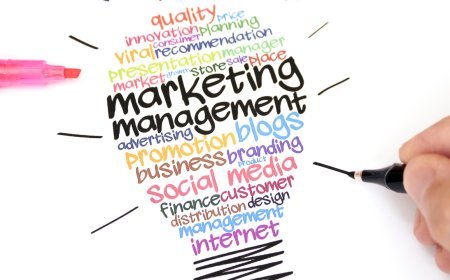B2B Marketing Strategies: Reaching Business Decision Makers
Learn effective B2B marketing strategies to reach business decision makers, generate qualified leads, and build long-term client relationships.

B2B marketing requires different strategies than consumer marketing due to longer sales cycles, multiple decision makers, and higher transaction values. Successful B2B marketing focuses on building trust, demonstrating expertise, and providing value throughout extended buying processes while addressing the specific needs of business customers.
Understanding the B2B buying process helps you create marketing strategies that support prospects through complex decision-making journeys. B2B purchases often involve multiple stakeholders, extensive research periods, and careful evaluation of options. Map your content and touchpoints to different stages of the buying process to provide relevant information when prospects need it most.
Account-based marketing (ABM) focuses resources on high-value target accounts through personalized, coordinated campaigns. Identify key accounts that represent significant opportunities, research their specific challenges and goals, and create customized content and outreach strategies for each account. ABM often delivers higher ROI than broad-based marketing approaches.
Content marketing for B2B audiences emphasizes educational, problem-solving content that demonstrates expertise and builds trust over time. Create in-depth guides, whitepapers, case studies, and industry reports that address specific business challenges. B2B buyers often consume multiple pieces of content before making purchasing decisions, making comprehensive content libraries essential.
LinkedIn marketing provides the most effective social media platform for reaching B2B audiences, offering sophisticated targeting options and professional networking opportunities. Share thought leadership content, participate in industry groups, and use LinkedIn's advertising platform to reach specific job titles, industries, or company sizes. LinkedIn often generates higher-quality B2B leads than other social platforms.
Email marketing for B2B focuses on nurturing relationships over extended periods while providing ongoing value to busy professionals. Create educational email series that address industry trends, share relevant insights, and gradually build trust without being overly promotional. Segment lists based on company size, industry, or buying stage for more relevant messaging.
Webinars and virtual events work particularly well for B2B marketing by providing educational value while showcasing expertise to multiple decision makers simultaneously. Host sessions that address common industry challenges, invite expert speakers, and use interactive features to engage participants. Webinars often generate high-quality leads and provide opportunities for direct engagement with prospects.
Trade shows and industry events remain important for B2B marketing, providing face-to-face networking opportunities and the ability to demonstrate products or services directly. Prepare strategic approaches for events, focus on quality conversations over quantity of contacts, and follow up systematically with leads collected at events.
Thought leadership positioning establishes your business as an industry expert through speaking engagements, published articles, and media appearances. Develop unique perspectives on industry trends, share insights through various channels, and build recognition as a trusted voice in your field. Thought leadership often influences B2B buying decisions more than traditional advertising.
Case studies and customer success stories provide powerful social proof for B2B marketing by demonstrating real results achieved for similar businesses. Create detailed case studies that outline client challenges, your solutions, and measurable outcomes. Include specific metrics and quotes from satisfied clients to build credibility with prospects facing similar challenges.
Search engine optimization for B2B targets keywords that business decision makers use when researching solutions. Focus on industry-specific terms, problem-based searches, and solution-oriented keywords rather than general consumer terms. B2B SEO often requires more technical, detailed content that addresses complex business needs.
Sales and marketing alignment ensures consistent messaging and smooth transitions from marketing-generated leads to sales conversations. Establish clear lead qualification criteria, create shared definitions of marketing qualified leads (MQLs) and sales qualified leads (SQLs), and maintain regular communication between teams to optimize the handoff process.
Marketing automation for B2B helps manage complex, long-term nurturing sequences that support extended buying cycles. Use behavioral triggers to send relevant content based on prospect actions, score leads based on engagement and fit, and automate follow-up sequences that maintain contact without overwhelming busy professionals.
ROI measurement and attribution become more complex in B2B marketing due to longer sales cycles and multiple touchpoints. Track leading indicators like content downloads, webinar attendance, and email engagement alongside lagging indicators like sales conversions. Use multi-touch attribution models to understand how different marketing activities contribute to eventual sales.
Accelerate your B2B growth with targeted marketing strategies! Connect with B2B marketing specialists on saneyou.com who understand complex business sales cycles and decision-making processes, or post your B2B services to reach business decision makers actively seeking solutions like yours.
What's Your Reaction?
 Like
0
Like
0
 Dislike
0
Dislike
0
 Love
0
Love
0
 Funny
0
Funny
0
 Angry
0
Angry
0
 Sad
0
Sad
0
 Wow
0
Wow
0









